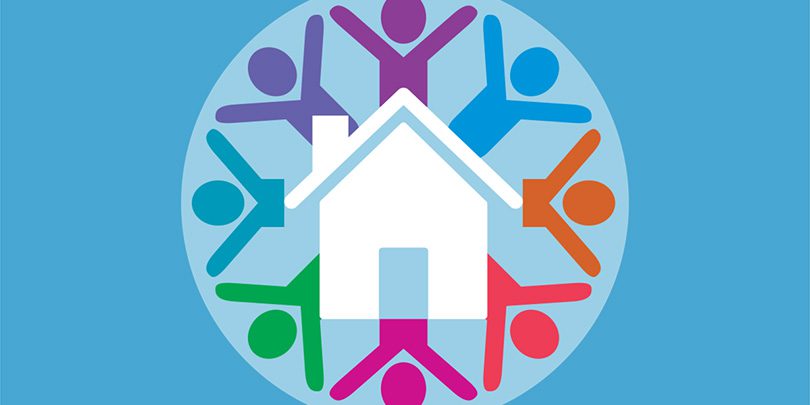On Tuesday evening, December 6, many WeNeedaVacation homeowners had the opportunity to meet online with some of the top experts waging the battle against the Cape and Islands housing crisis.
The meeting was kicked off by Alisa Magnotta, CEO of Housing Assistance Corp (HAC), who presented an overview of the crisis and framed the complex problem.
Alisa was followed by Hadley Luddy, CEO of the Homeless Prevention Council (HPC) and Terri Barron, Director of Housing Rehabilitation Programs at the Community Development Partnership (CDP). Ms. Luddy and Ms. Barron provided information about Accessory Development Units (ADUs), a hot topic at many town meetings across the region.
And finally, Beth Wade, Director of Land Acquisition & Project Development at Habitat for Humanity of Cape Cod, provided information about Habitat’s role and vision to help ease the crisis.
In case you missed the meeting, feel free to view the video of the meeting:
A summary of the meeting
Alisa Magnotta’s framing of the problem related directly to us homeowners. Rapidly increasing housing prices are driving our workforce away from the Cape and Islands. Nearly 50% of the Cape’s workforce (teachers, police, service personnel, contractors, wait staff, etc.) commute from the mainland every day to keep our economy and quality of life up to the standards we expect. (Six years ago, it was 25%.) This situation is hardly sustainable. We are losing close to 1,000 families a year due to housing costs. Think about the implications now and long-term, she suggested, on our beloved region if service personnel continue to erode.
Alisa’s assessment of the core problem is zoning
Our region is built around single-family homes as virtually the only form of housing stock. But with the huge inflation of housing costs, housing becomes increasingly unaffordable. Five years ago, a family in a housing crisis came to HAC once a month. Now, it’s daily.
We need to rethink zoning, especially in town centers where there would be the least environmental damage. That is, we need housing zoning to be denser than one family per lot: multi-family, apartments, etc. HAC and APCC just published a study on where denser housing would be most suitable. See https://growsmartcapecod.org/. Alisa urged us to participate in town government and town meetings to support these zoning changes.
What is HAC?
Launched in 1974, Housing Assistance Corporation is a nonprofit leader that provides essential housing services to low- and middle-income households on Cape Cod, Martha’s Vineyard, and Nantucket. Its mission is to strengthen the region by empowering individuals, fostering community connections, and increasing year-round affordable housing opportunities. Alisa has led the $30 million agency since 2017.
HAC is the main housing support organization for the Cape & Islands. Alisa was recently appointed as co-chair of the Affordable Abundant Housing Committee within Governor-elect Maura Healey’s transition team. The committee will work to address numerous statewide housing issues.
Hadley Luddy and Terri Barron re: Accessory Dwelling Units (ADUs)
An ADU is a second living unit on your property either attached to your home or as a separate building.
Hadley Luddy and Terri Barron presented their organizations’ joint effort to ease the development of Accessory Development Units (ADUs). See the Lower Cape Housing & Resource Center, their joint venture to support ADUs, provide Housing Stabilization resources, and Resident Services.
ADUs might appeal to many of our homeowners who could increase the income for their property while helping a family remain living here. HPC’s mission is to provide personalized case management solutions to promote stability for all those who live in the Lower and Outer Cape. They also provide support for year-round rentals. See https://www.hpccapecod.org/about for more.
The Community Development Partnership
The Community Development Partnership leads the Lower Cape in building a diverse, year-round community of people who can afford to live, work, and thrive here. “To accomplish our mission,” they say, “we promote, develop, and manage affordable housing; nurture the launch and growth of small businesses; and facilitate collaboration with business, non-profit, and government partners.”
As Terri Barron said, “We can’t afford to lose the people who can’t afford to live here.”
Beth Wade from Habitat Cape Cod
In our last presentation, Beth Wade at Habitat Cape Cod described Habitat’s building of 180 homes on the Cape, primarily during the past 10 years. They build 10-12 homes per year for qualifying families at 80% Area Median Income (AMI) and who are willing to expend 250 hours per adult to defray their down payment.
These homes help house our workforce. Habitat builds all net-zero homes and were recently given an award for one of their homes having the lowest HERS (Home Energy Rating System) rating (-15) of any Habitat home in the US! The HERS Index is the industry standard by which a home’s energy efficiency is measured.
Beth told us about a homeowner in Brewster, Beth Finch, who has donated to Habitat some of the land where she lives to enable the build of two new homes. She praised her YIMBYism (Yes, in my back yard)!
In summary
Our speakers briefly outlined the real crisis that our communities need to face. WNAV was very proud to help bring this issue to light, and we look forward to working with these agencies and our clients to help mitigate the problem.
If you’d like to help to be part of the solution, here are several solutions worth your consideration:
- Participate in changing zoning to allow development of housing in appropriate areas.
- Establish an ADU on your property.
- Convert your short-term rental to a year-round home for a working family.
- Rent your home in the winter, but be sure that your winter tenant has an offramp. Michael Pierce, an attorney in Hyannis, is very knowledgeable on this.
- Encourage your town to designate part of their local STR tax revenue for housing.
- WNAV and HOs could contribute $$ to affordable housing. Any appetite?
- To keep our vacationers coming, we need a robust service sector.
- Share your home. (Annamarie Pluhar https://sharinghousing.org/)
- Donate to these and other organizations.








Hat’s off to you and your crew for taking such a bold leadership step! This was an impressive gathering of people and information. We are at a crisis point but unfortunately too many of us use it as a cry fest not crisis. You are offering real change that needs to happen and solid resources. Well done and thank you!
Thank you, Bob, and well put! You’re right that a cry fest does not solve the crisis. We’re grateful for your involvement and support. Together, as a whole community we can, and must, solve this huge problem.